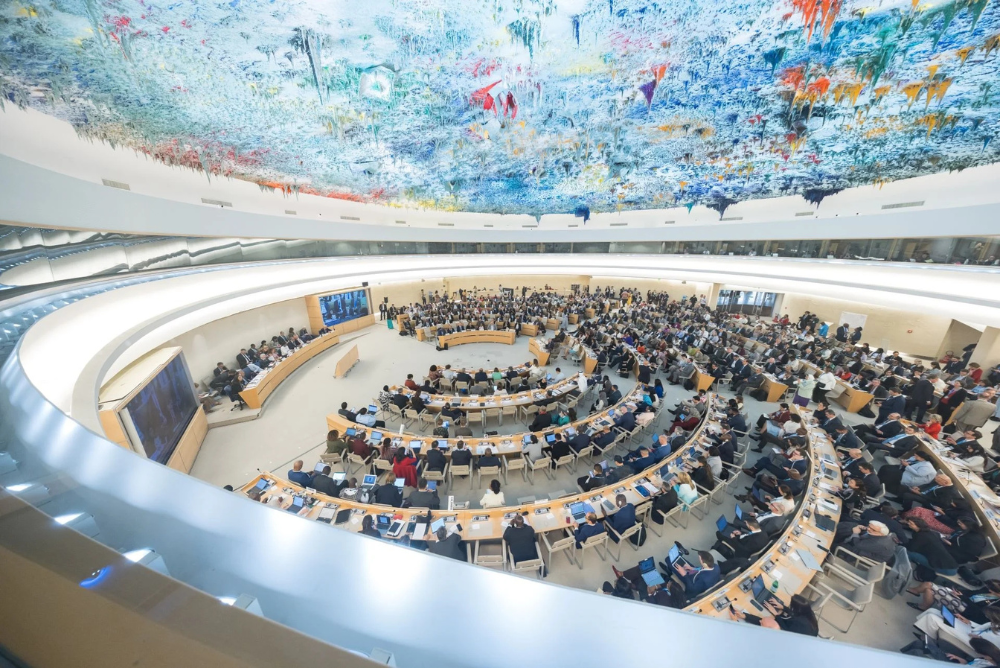World Health Assembly 78: After 3 years of negotiations, the WHO adopts an international agreement to prevent pandemics
In a historic vote, WHO member countries adopted the Global Pandemic Treaty, an agreement to prevent, prepare for, and respond to pandemics. In the end, with a unanimous vote of 124 in favor, 0 against, and 11 abstentions, the WHO adopted the pandemic agreement.
WHO watchers follow the WHA78 - check here for daily briefs, statements and policy briefs
The “approval of the Pandemic Agreement resolution follows a more than three-year process, launched by governments during the COVID-19 pandemic, to negotiate the world’s first such accord to address the gaps and inequities in preventing, preparing for and responding to pandemics. This watershed agreement was adopted under Article 19 of the WHO Constitution. It aims to foster stronger collaboration and cooperation among countries, international organizations like WHO, civil society, the private sector and other stakeholders to prevent pandemics occurring in the first place, and to better respond in the event of a future pandemic crisis.” stated the WHO on its press release following the vote.
PHM’s Team of Watchers followed the discussions and the vote at the WHA78
The Pandemic Accord listed as Item 16.2 was then taken up, under which the Assembly considered adoption of the draft pandemic accord. When the pandemic treaty was introduced and the floor opened for member states to comment, almost all member states raised their name plates to comment.
Most countries – North and South – welcomed the outcome of the INB with enthusiasm, expressing support for the adoption of the proposed resolution. Member states commended the INB for their tireless efforts and acknowledged the pandemic accord as an important and historic milestone, a tool to ensure global safety and responsibility. Many member states expressed strong support for the pandemic agreement in the spirit of protecting multilateralism. The need to promote equity and to stand in solidarity in the face of pandemic threats were key themes of many statements. The delegate of Haiti shared “Equity cannot remain a theory for Haiti” highlighting the importance of concrete actions in implementation of the agreed principles. The spirit of the day was that – in the words of the INB Co-Chair – “no country can address a global crisis on its own.”
INB Co-Chairs introduce the pandemic accord and summarize the INB process Most countries (e.g. Guyana and Brazil) highlighted the importance of multilateralism in strengthening global health security. The centrality of the One Health approach was mentioned several times as an exemplary aspect of the agreement (e.g. by Austria and Barbados). Principles of equity and fairness were also mentioned several times (Uganda and Ecuador).
Notably, equity was used in two ways in the discussion: both by asking for more of it and for keeping it in mind when the agreement is in place, and to describe the direction that the agreement moved the states toward, while others (especially Global North members) seemed to claim that the treaty successfully captured the priority of equity in pandemic PPR.
Countries like South Africa, Egypt, Senegal, and Indonesia emphasized the need for a legally binding framework to address critical gaps in pandemic preparedness and response such as benefit sharing, sustainable financing, technology transfer and support to member states. Other supporting countries include the EU, France, Bahamas, Samoa, Angola, Thailand, Australia, China, Cuba, and many more – who see the agreement as a crucial step towards a more equitable and resilient global health architecture – called for the adoption of the agreement according to article 19 of WHO constitution.
Other countries, including India and Colombia, while supporting the agreement, highlighted the need for careful consideration of specific provisions, such as technology transfer and intellectual property rights.
Some members were much more critical of the treaty, however, with Bulgaria particularly taking issue with Article 4 (on prevention) and Article 5 (One health). Several others expressed hesitation about supporting the draft. For instance,mechanisms and financial restrictions during pandemics. Panama highlighted the right to development and emphasised the need to first finish negotiations on the planned Pathogen Access and Benefit Sharing (PABS) mechanism before proceeding with the agreement further. The necessity of this position was driven home by Denmark's statement, as they called for PABS to stay not only voluntary but also to be constructed in a way so that companies would join it on this non-binding basis. Bulgaria, Israel, Japan, and Hungary raised concerns about the clarity, feasibility, and potential implications of PABS on national sovereignty and industry participation. Bulgaria specifically highlighted concerns about the negotiation process and the lack of information on PABS implementation. Israel and Japan emphasized the need for a reasonable and viable PABS system, while Hungary stressed the importance of preserving national sovereignty.
Notwithstanding these objections, the “festive mood” that was called for by Bangladesh did materialize in the end, as the resolution was overwhelmingly adopted by the Assembly. At the request of Slovakia, the resolution was taken to a vote (by show of hands) – and eleven countries availed themselves of the opportunity to abstain from the poll – but nevertheless the resolution passed by 124 votes to 0.
Abstainers included Bulgaria, Egypt, Iran, Israel, Italy, Jamaica, the Netherlands, Paraguay, Poland, Russia and Slovakia, with reasons for abstaining ranging from the perceived lack of consensus around the decision, alleged opaque behaviour by some parties prior to the decision (Egypt), worries over state sovereignty (Russia, Italy), the need for “national processes” to precede agreement (Poland), and the unfinished business of PABS (Iran, Bulgaria).


